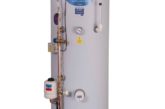
Mark Krull from LCL Awards and Logic4training answers some of the key questions installers have asked about the government’s plans.
Is this the end of the road for gas boilers?
The short answer is: no! Gas boiler installation will end in new builds in 2025 when the new Part L comes in and the government announced earlier this week that it aims to phase out all new gas boiler installations by 2035 – that’s 14 years’ time.
We have had confirmation that under no circumstances will consumers be required to get rid of a working gas central heating system. Gas boilers have an average lifespan of 10 to 15 years so it is fair to assume they will be around for at least another 30 years, if not more, requiring regular servicing and maintenance.
The recent Heat and Building Strategy sets out plans to drive down the overall cost of heat pumps including shifting levies from electric to gas, but until cost parity is achieved, most consumers will continue to choose gas.
How will hydrogen boilers fit into the mix?
It’s a case of ‘watch this space’ for now. Many were expecting big hydrogen announcements in the Heat and Buildings Strategy but this was not to be. Hydrogen trials will continue in towns and villages until 2026 before strategic decisions are made. The government has said that it wants hydrogen to power around 3 million homes by 2030 – in the future, it is likely that all new gas boilers will be hydrogen ready.
Boilers that run on natural gas and 100% hydrogen have been developed and could provide a simple transition to low-carbon fuels on a mass scale when the time comes. What we do know is that to meet the challenges of the future we will need a variety of fuels and technology – it is likely that hydrogen will play a part.
Will installers need to be MCS certified in order for their customers to be eligible for grants?
Yes, installers will only be able to take part in low carbon heating incentive schemes if they are MCS certified. End users need an MCS certificate to access any government subsidies or funding and some mortgage companies ask for it now too.
MCS is the mark of excellence for low-carbon installations and is something that customers will be looking for to make sure they get a top-quality installation that is worth their investment.
Will MCS be simplified so that sole traders can be competitive with huge time/cost implications?
This is a very common concern. MCS sets the bar high and becoming certified is a big commitment for installers who are already rushed off their feet.
Recently, MCS introduced a new qualification-based route to becoming certified which makes it easier for installers to get their first installation without taking on the cost of it themselves.
For those who dread the time spent in the office, MCS Made Easy is a scheme run by renewable training experts, GTEC, which aims to support installers through the certification process in the most streamlined and effective way possible – a no brainer for those taking their first plunge into MCS.
Where does this leave hybrid systems?
At the moment, hybrid systems, comprising a combination of a heat pump and fossil fuel boiler, will not be eligible for the Boiler Upgrade Scheme. The focus of the new scheme and future consultations is a Low Temperature Heat Pump first approach.
If you have any questions or concerns you’d like addressed, please email [email protected] or message us on Twitter













